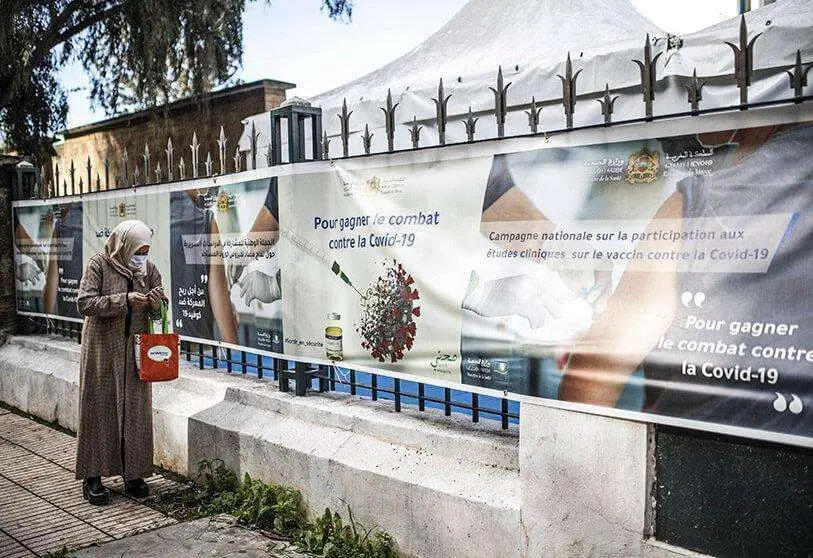Marruecos anuncia una nueva prórroga del estado de emergencia sanitaria

Concern over the coronavirus in Morocco continues to be an ongoing issue on the government's agenda, and Aziz Akhannouch, the prime minister, will continue to fight the disease until the situation stabilises. For this reason, the government has just announced that the state of health emergency deployed throughout the country will remain in force until further notice.
For the moment, the deadline is 30 September, but further extensions are not ruled out depending on the status of COVID-19 in the country. As of this Sunday, 31 July at 6 p.m., the bill will come into force.

This extension is linked to draft decree no. 2.22.564 and was presented by the Moroccan Minister of the Interior, Abdelouafi Laftit. It was subsequently approved by the entire government council and the news was announced by the Minister Delegate for Relations with Parliament and government spokesman, Mustapha Baitas, during a press conference.
The aim of this extension is to continue to guarantee the health and safety of Moroccan citizens in the face of new waves of contagion. They will have to follow the measures adopted by the country's authorities to continue to preserve the achievements in the fight against the pandemic. Moroccans will have to continue to wear masks in some places and continue to avoid crowds, as well as to wash their hands properly to prevent the spread of the disease. Restrictions on entering and leaving the country will still be maintained and the emphasis will be on continuing vaccination for those who have not been vaccinated.

In these two years of the pandemic, since the first cases, Morocco has not stopped renewing the state of health emergency. The government is very concerned about the new crises and waves caused by the virus, which is why it prefers to continue with this situation rather than put the lives of its citizens at risk.
Initially, this was to end on 30 June, but after a meeting between Akhannouch and his council, assessing the current health situation, they decided to extend it for another month. This was because the Kingdom is suffering a very alarming rise in the number of infected people, with 3,141 new cases and five deaths in a single day.
Morocco decreed the first state of emergency in mid-March 2020. In addition to measures to prevent contagion, a month of home confinement was introduced for Moroccans starting on 20 March, following the example of other countries in this decision.
Since then, the Kingdom has been trying to prevent the spread of the coronavirus at all costs. In these two years of the pandemic, the government has closed air and sea borders, imposed rules and laws to comply with, imposed confinements, and so on. All in an attempt to avert a catastrophe that could have plunged the country into absolute chaos.

MAP, the Moroccan state news agency, has published the latest data on the epidemiological situation in Morocco. The Ministry of Health and Social Protection confirms that 659 new cases of infection and the death of two people have been recorded in the last 24 hours. Since the beginning of the pandemic, the number of deaths from COVID has now reached 16,226 people.
Despite this, the number of people overcoming the disease remains higher, with 1,304 recoveries in the last hours. This is due to the good vaccination campaign taking place in the Kingdom. Today, almost 25 million people have had the first dose and just over 23 million the full course. Although it is worth noting that there is still resistance in the number of people taking the third and fourth doses, reaching more than 6.5 million and 23,000 respectively.








